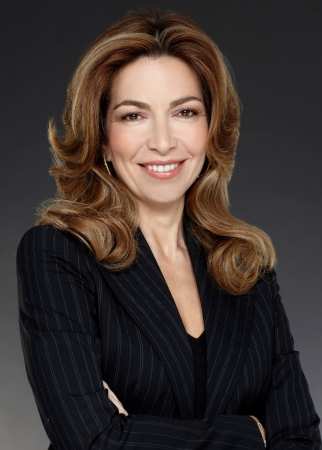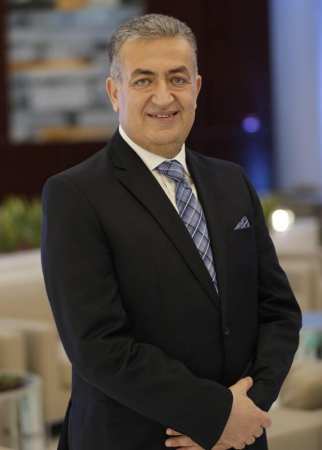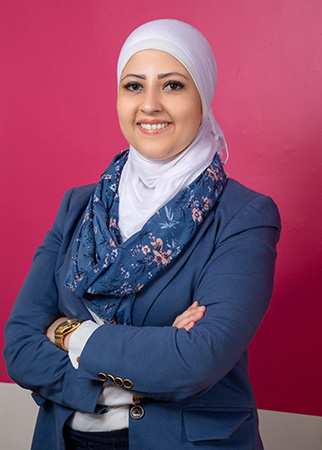HRH Princess Ghida Talal
Chairperson
King Hussein Cancer Foundation and Center
There are few causes in our world more deserving and more urgent than the fight against cancer. Cancer has touched all of us in one way or another, and it knows no boundaries. Thankfully, cancer patients in our region now have access to the most advanced cancer care at the King Hussein Cancer Center (KHCC), the only comprehensive cancer center in the Middle East for both adult and pediatric patients and the first center in the developing world to be internationally accredited as a cancer specialist center.
We are all aware of the alarming breast cancer statistics in our region, where breast cancer is the most common type of cancer afflicting women. This challenge is compounded by the fact that in the Arab world, breast cancer strikes women at a much younger average age than in the West, an age when women are still caring for their families and contributing to their communities.
The fight against breast cancer begins much earlier than most of us think. It begins before treatment and even before diagnosis. In fact, it all starts with the seemingly simple decisions we make on a daily basis. With breast cancer in particular, the fight begins with the decision to get your early detection test.
I am counting on you to encourage your mothers, sisters, friends and colleagues to get tested. This is the only way to save your life and that of your loved ones.
Together, we can fight breast cancer with lifesaving early detection and treatment, which give a real chance for a cure to breast cancer patients everywhere.

Dr. Asem Mansour
Chief Executive Officer / Director General
Executive Chairperson Jordan Breast Cancer Program Board
At the King Hussein Cancer Center (KHCC), excellence and high-caliber services are the cornerstones of our fight against cancer. Our dedication to quality and safety is guided by our strategic vision and evidenced by our achieved successes. Our efforts begin with KHCC commitment to offering amenities and services in an environment that fosters a multidisciplinary, personalized and dedicated team approach.
According to the Jordan Breast Cancer Registry, on average, there are about 1000 newly diagnosed breast cancer cases annually. These are responsible for 37% of all female cancer cases. These statistics prove that breast cancer early detection and treatment continues to pose a global challenge and hence, is put on the top of social priorities in Jordan, which .
Prior to the birth of Jordan Breast Cancer Program (JBCP), the vast majority of breast cancer cases were detected at advanced stages of the disease, resulting in low survival rates and high treatment costs. Since then, JBCP has been able to identify gaps and address issues by utilizing a comprehensive, participatory, multispectral and multidimensional approach which will positively reflect on future survival rates.
JBCP has taken the responsibility to further build the capacities of healthcare providers working in the field of screening and early detection of breast cancer through adapting the multidisciplinary approach which includes, radiologists who are working hand in hand with; pathologists, surgeons, radiographers and other disciplines.
Conclusively, JBCP’s notable achievements on the national level deserve taking a moment to congratulate ourselves; JBCP’s leadership, employees, and supports for the great work done over the years.
Our deep commitment to our mission will continue to ensure that every woman in Jordan has access to lifesaving screening and diagnostic services.

Reem Al Ajlouni
Director of the Jordan Breast Cancer Program
As a Jordanian citizen, a health equity advocate, and a breast cancer survivor; I continue to be proud of the excellent accomplishments made by the King Hussein Cancer Foundation and Center in the fight against cancer.
The Jordan Breast Cancer Program is a national program that was established in 2007 by a group of Jordanian visionaries led by the King Hussein Cancer Foundation and Center in close collaboration with the Ministry of Health and our national partners to ensure the provision and availability of high quality services for breast cancer screening and to change social behaviors associated with breast cancer by raising public awareness on the risk factors, symptoms, signs and benefits of early detection and screening, encouraging women and communities to demand early detection services, and eliminating challenges that may face women in accessing these services. JBCP has always pulled in passionate and dedicated people, and 12 years after, as I step in to the role of the director, I am struck by the engagement and commitment of our partners who eagerly continue to be involved in and support early detection at all levels.
Every year, more than 1200 Jordanian women get diagnosed by breast cancer, and at one time I was one among them. Breast cancer has touched all of us in some way - family members, colleagues and friends. JBCP is committed to doing everything possible to change that unacceptable reality, and empowering women to take informed decisions about their health focusing on maximizing efforts towards screening, early detection, and awareness.
After I received my breast cancer diagnosis, I prepared myself for the worse, luckily for the facts that I caught it early, and I got proper comprehensive care and strong support, I am today a survivor. Since then, I believed more and more in the early detection and the power of awareness, and education. Early detection is the best prevention and it really saves lives. I never want to forget what myself and many other women and men around Jordan have gone through, and as it is said “The power in people is stronger than people in power.” So together we’ll be able to make real and lasting change.
Our goal that we all want is to control cancer and prevent it, but until we achieve this, we continue on spreading awareness, improving quality of services, changing stereotypes and taboos around it, advocating for sound policies, and spreading hope.




